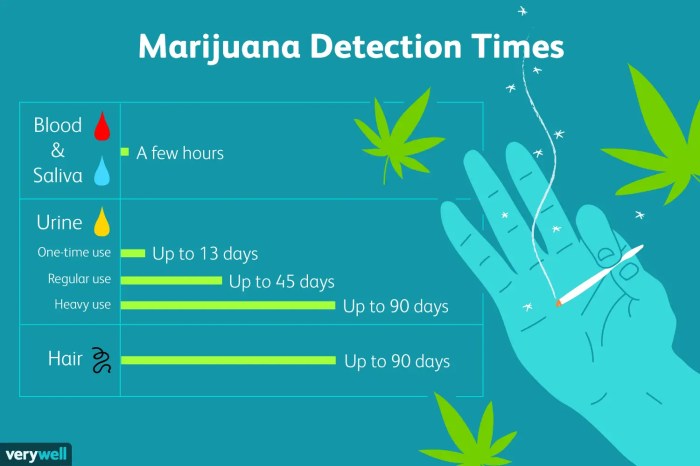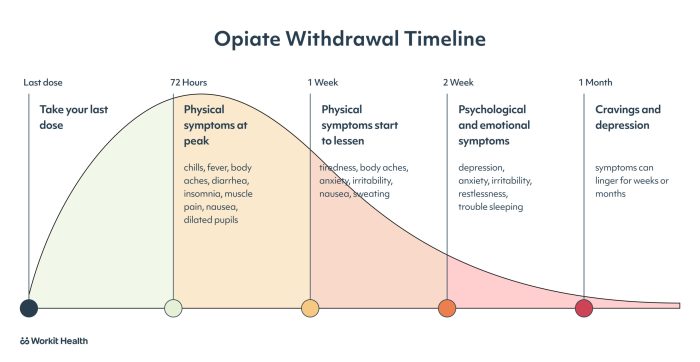How long does jazz detox last? This question plagues many individuals considering or undergoing a jazz detox. Join us as we delve into the intricacies of jazz detox, exploring its duration, symptoms, and management strategies.
Jazz detox, the process of eliminating jazz from one’s system, can vary significantly in duration. Understanding the factors that influence this timeframe is crucial for setting realistic expectations and ensuring a successful detox.
Duration of Jazz Detox

Jazz detox, a term used to describe the process of overcoming an addiction to jazz music, can vary in duration depending on individual circumstances and the severity of symptoms. Generally, the detox period lasts for a few days to several weeks.
Factors Influencing Duration
Several factors can influence the duration of jazz detox, including:
- Severity of Addiction:Individuals with a severe addiction may experience more intense symptoms and require a longer detox period.
- Individual Circumstances:Factors such as age, health, and lifestyle can affect the detox process.
- Support System:Having a supportive network of family, friends, or therapists can provide emotional and practical assistance, potentially shortening the detox period.
Duration Examples
The duration of jazz detox can vary widely. Some individuals may experience symptoms for a few days, while others may require several weeks or even months to fully overcome their addiction. Here are some examples:
- Mild Addiction:Individuals with a mild addiction may experience withdrawal symptoms for 3-7 days.
- Moderate Addiction:Those with a moderate addiction may experience symptoms for 1-2 weeks.
- Severe Addiction:Individuals with a severe addiction may require a detox period of 3 weeks or more.
Symptoms During Jazz Detox: How Long Does Jazz Detox Last

Jazz detox, the process of abstaining from jazz music, can lead to a range of withdrawal symptoms. These symptoms can manifest physically, mentally, and emotionally.
Physical symptoms of jazz detox may include headaches, muscle aches, fatigue, and gastrointestinal distress. Mentally, individuals may experience anxiety, depression, and difficulty concentrating. Emotionally, jazz detox can lead to feelings of sadness, irritability, and mood swings.
Common Symptoms of Jazz Detox
| Symptom | Type | Description |
|---|---|---|
| Headaches | Physical | Mild to severe headaches, often accompanied by tension or throbbing. |
| Muscle aches | Physical | Aching or soreness in muscles, particularly in the neck, back, and shoulders. |
| Fatigue | Physical | Persistent feelings of tiredness and lack of energy. |
| Gastrointestinal distress | Physical | Nausea, vomiting, diarrhea, or constipation. |
| Anxiety | Mental | Feelings of worry, nervousness, and unease. |
| Depression | Mental | Persistent feelings of sadness, hopelessness, and loss of interest. |
| Difficulty concentrating | Mental | Reduced ability to focus or pay attention. |
| Sadness | Emotional | Feelings of grief, sorrow, or melancholy. |
| Irritability | Emotional | Increased sensitivity and proneness to anger or frustration. |
| Mood swings | Emotional | Rapid changes in mood, from elation to sadness or anger. |
Stages of Jazz Detox

Jazz detox, a term used to describe the process of withdrawing from jazz music, involves distinct stages characterized by varying symptoms and experiences. These stages represent the progression of withdrawal as the body adjusts to the absence of jazz music.
The stages of jazz detox can be broadly categorized as follows:
Early Stage
- Intense cravings for jazz music
- Irritability and mood swings
- Difficulty concentrating
- Increased anxiety and restlessness
- Sleep disturbances
Peak Stage
- Severe cravings for jazz music
- Intensified irritability and mood swings
- Impaired cognitive function
- Elevated anxiety and restlessness
- Physical symptoms such as headaches and nausea
Late Stage
- Gradual reduction in cravings for jazz music
- Improved mood and reduced irritability
- Enhanced cognitive function
- Decreased anxiety and restlessness
- Resolution of physical symptoms
Management and Support During Jazz Detox

Managing and mitigating symptoms during jazz detox requires a multifaceted approach that involves self-care practices, support systems, and professional help.
Self-Care Practices
- Hydration: Staying well-hydrated is crucial to flush out toxins and prevent dehydration.
- Nourishing Diet: Consuming nutrient-rich foods, such as fruits, vegetables, and whole grains, supports overall health and well-being.
- Sleep: Getting sufficient rest allows the body to recover and repair.
- Exercise: Moderate exercise can help manage stress and boost endorphin levels.
- Stress Management: Engaging in stress-reducing activities, such as yoga, meditation, or spending time in nature, can help cope with withdrawal symptoms.
Support Systems
- Support Groups: Joining support groups can provide a sense of community and shared experiences.
- Family and Friends: Seeking support from loved ones can offer emotional encouragement and practical assistance.
- Therapist or Counselor: Professional guidance can help individuals navigate the challenges of jazz detox and develop coping mechanisms.
Professional Help, How long does jazz detox last
- Medical Supervision: In severe cases, medical supervision may be necessary to manage withdrawal symptoms and ensure safety.
- Addiction Treatment Centers: These facilities offer comprehensive programs that include detoxification, therapy, and support services.
- Outpatient Programs: Outpatient programs provide support and guidance while individuals continue to live at home.
Remember, jazz detox can be a challenging process, but with proper management and support, individuals can overcome withdrawal symptoms and achieve long-term recovery.
While jazz detox’s duration varies, its effects can be lasting. Art can also have a lasting impact. Take the uprising by diego rivera , for example. Its powerful imagery captures a moment in history that continues to resonate today. Like jazz detox, art can cleanse and inspire, leaving a lasting impact on our lives.
However, the duration of jazz detox’s effects may vary depending on individual factors.
Considerations for Jazz Detox

Jazz detox involves significant changes to one’s physical and mental state. Before embarking on this process, it is crucial to be aware of potential risks and complications, and to seek professional advice to ensure a safe and effective experience.
Importance of Professional Advice
Jazz detox can trigger various physical and psychological reactions. Professional guidance from a doctor or therapist can help manage these effects, minimize risks, and ensure the detoxification process aligns with individual needs and circumstances.
User Queries
How long does jazz detox typically last?
The duration varies, but most individuals experience withdrawal symptoms within 24-72 hours, with the peak occurring within 2-3 days. Symptoms gradually subside over 1-2 weeks.
What factors influence the duration of jazz detox?
Factors include the frequency and amount of jazz consumed, individual metabolism, and overall health.
What are common symptoms of jazz detox?
Symptoms range from physical (headaches, nausea) to mental (anxiety, irritability) and emotional (mood swings, depression).